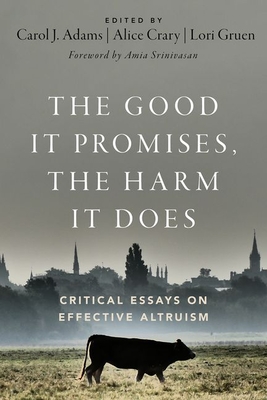What do you think?
Rate this book


312 pages, Paperback
Published February 17, 2023
Providing caring multispecies communities for formerly farmed animals at sanctuaries is perhaps the most striking example of non-reformist reforms in the animal advocacy movement. These sanctuaries not only provide meaningful, safe spaces for the nonhuman residents in their care, but also help us reframe and reimagine our relationships with animals, which have traditionally been relations characterized by power and control.
EA, predicated on the principle of utility, which includes being reasonably certain of the consequences of our actions for the greatest number of those effected, would mean that the film Blackfish should not have been made, as it was produced to highlight the horrendous conditions of one killer orca whale, Tilikum. Yet this work, inspired by the desire to help one animal, had the sweeping effect of almost eradicating SeaWorld and the other similar aquatic circuses.